Providing the Same Level
of Care We Expect for
Our Own Family
Home Care Services for Patients with Parkinson's Disease
Parkinson's disease is a complex neurodegenerative disorder that affects millions of individuals worldwide. According to National Institute on Aging, Parkinson's disease is a brain disorder that causes unintended or uncontrollable movements, such as shaking, stiffness, and difficulty with balance and coordination. Symptoms usually begin gradually and worsen over time. As the disease progresses, people may have difficulty walking and talking. As the disease progresses, it can impact a person's ability to perform daily activities, leading to a need for specialized care and support. At 7 Day Home Care, we are dedicated to providing compassionate and comprehensive home care services specifically tailored to meet the unique needs of individuals living with Parkinson's disease. In this article, we will explore the benefits and considerations of home care for patients with Parkinson's, highlighting the ways in which our services enhance their independence, well-being, and overall quality of life.
Understanding Parkinson's Disease:
Parkinson's disease is characterized by the progressive loss of dopamine-producing cells in the brain, resulting in motor symptoms such as tremors, rigidity, and difficulty with balance and coordination. Additionally, non-motor symptoms such as cognitive changes, mood fluctuations, and sleep disturbances may also occur. As the disease advances, individuals may require assistance with various aspects of daily living, making home care an invaluable resource for maintaining their independence and dignity.
The Benefits of Home Care for Parkinson's Patients:
1. Personalized Care Plans:
Home care services for Parkinson's patients are designed to cater to their specific needs. Our dedicated care team collaborates with the patient, their family, and healthcare professionals to create personalized care plans that address their unique challenges and goals. By focusing on individualized care, we can adapt our services as the disease progresses, ensuring the patient's evolving needs are met effectively. More, a personalized home care plan is a tailored and comprehensive document that outlines the specific care and support a person needs while receiving in-home care services. It is developed collaboratively between the individual receiving care, their family or caregivers, and healthcare professionals.
2. Assistance with Activities of Daily Living:
Home care services encompass a wide range of support, including assistance with activities of daily living (ADLs). Our caregivers are trained to provide hands-on support with tasks such as personal hygiene, dressing, grooming, meal preparation, and medication reminders. This comprehensive assistance allows Parkinson's patients to maintain their daily routines and independence, while minimizing the risk of accidents or complications.
3. Medication Reminders and Symptom Control:
Managing reminders regimens is crucial for Parkinson's patients. Our caregivers are experienced in medication reminders, ensuring that medications are taken at the correct times and in the proper dosages. They can also provide support in tracking and reporting any changes in symptoms, working closely with healthcare professionals to optimize the patient's medication regimen and symptom control. Here are some key considerations for medication reminders and symptom control for individuals with Parkinson's disease:
- Medication Reminders:
- Consistency is Key: Parkinson's medications need to be taken consistently and at the prescribed times to effectively manage symptoms. Set a daily routine for medication administration.
- Use Alarm Systems: Alarm clocks, smartphone alarms, or medication reminder apps can help ensure you take your medications on time. Some apps even allow you to record when you've taken your medication.
- Pill Organizers: Consider using a pill organizer with compartments for each day and time of the week. This can help you keep track of whether you've taken your medication.
- Understanding Medications:
- Work with Your Healthcare Team: Consult with your neurologist or healthcare provider to understand the specific medications prescribed, their dosages, and any potential side effects.
- Medication List: Keep a list of your medications, including their names, dosages, and schedules. Share this list with your healthcare team, caregivers, and family members.
- Symptom Control:
- Monitor Symptoms: Keep a symptom journal to track changes in your condition and the effectiveness of your medications. This can help you and your healthcare provider make necessary adjustments.
- Exercise and Physical Therapy: Engage in regular exercise and physical therapy, as prescribed by your healthcare provider. These activities can help improve mobility and reduce muscle stiffness.
- Diet and Nutrition: Maintain a balanced diet and stay well-hydrated. Some individuals with Parkinson's find that a Mediterranean diet rich in fruits, vegetables, and whole grains may be beneficial.
- Speech and Occupational Therapy: If speech or fine motor skills are affected, consider working with a speech therapist or occupational therapist to address these issues.
- Support Network:
- Involve Caregivers: Inform your caregivers or family members about your medication schedule and symptom management plan. They can provide valuable support and reminders.
- Support Groups: Join a Parkinson's support group in your area or online to connect with others facing similar challenges. These groups can offer practical advice and emotional support.
- Regular Follow-Up:
- Consult with Specialists: Continue to see your neurologist or movement disorder specialist regularly to assess your condition, adjust medications as needed, and explore new treatment options.
Remember that Parkinson's disease management is highly individualized, and what works best for one person may not be the same for another. Open communication with your healthcare team and a commitment to adhering to your treatment plan are crucial for effective symptom control and maintaining a good quality of life.
4. Mobility Assistance and Fall Prevention:
As Parkinson's disease can affect mobility and balance, the risk of falls and injuries increases. Our caregivers are trained to provide mobility assistance, helping patients with transfers, walking, and exercises prescribed by physical therapists. They also implement fall prevention strategies, such as removing hazards in the home, ensuring proper lighting, and encouraging the use of mobility aids when necessary. By promoting safety and mobility, we strive to minimize the risk of accidents and enhance overall well-being. Here are some strategies and considerations for mobility assistance and fall prevention in-home care:
- Mobility Assistance:
- Assessment: Begin with a comprehensive assessment of the individual's mobility and balance. This assessment helps identify specific mobility issues and guides the development of a tailored care plan.
- Assistive Devices: Provide and encourage the use of mobility aids such as walkers, canes, or wheelchairs, as recommended by a healthcare professional. Ensure these devices are properly fitted and maintained.
- Physical Therapy: Arrange for physical therapy sessions to improve strength, balance, and flexibility. A physical therapist can create a customized exercise program to address mobility issues.
- Transfer Techniques: Train caregivers and the individual on safe transfer techniques, including getting in and out of bed, chairs, or the toilet. Proper body mechanics can reduce the risk of falls.
- Home Modifications: Make necessary home modifications, such as installing grab bars in bathrooms, non-slip flooring, and ramps if there are steps or thresholds that could pose a tripping hazard.
- Clear Pathways: Keep pathways clear of clutter, cords, and obstacles to ensure easy and safe movement throughout the home.
- Fall Prevention:
- Medication Management: Review medications with a healthcare provider to identify any that may contribute to dizziness or balance issues. Ensure proper dosages and adherence to medication schedules.
- Vision and Hearing Checks: Regularly assess and address vision and hearing impairments, as these sensory functions are essential for balance and fall prevention.
- Foot Care: Encourage proper foot care, including regular nail trimming and the use of well-fitting, supportive footwear with non-slip soles.
- Exercise and Balance Training: Incorporate exercises that focus on improving balance, such as yoga or tai chi. These activities can enhance stability and reduce the risk of falls.
- Nutrition and Hydration: Promote a balanced diet and adequate hydration to maintain overall health and muscle strength.
- Regular Home Safety Audits: Periodically assess the home environment for potential fall hazards and make necessary modifications. This includes ensuring adequate lighting, securing rugs, and addressing loose handrails.
- Emergency Response Plan: Establish a clear emergency response plan in case of a fall. This may include having a personal emergency response system (PERS) or ensuring the individual knows how to call for help.
- Education: Educate the individual and their caregivers about fall prevention strategies and the importance of recognizing and addressing fall risks.
- Regular Check-Ins: Conduct regular check-ins with healthcare providers to monitor the individual's health and make any necessary adjustments to the care plan.
- Psychosocial Support: Address any psychological factors, such as fear of falling, anxiety, or depression, that may affect mobility and confidence. Encourage emotional support and counseling as needed.
In-home care providers should work closely with healthcare professionals to develop and implement a comprehensive mobility assistance and fall prevention plan tailored to the individual's unique needs and circumstances. Regular assessments and adjustments to the care plan are essential to ensure ongoing safety and well-being.
5. Emotional and Social Support:
Living with Parkinson's disease can take an emotional toll on patients and their families. Our caregivers offer emotional support, companionship, and engage patients in activities that stimulate their minds and spirits. They also help patients stay connected with friends, family, and the community, fostering social engagement and preventing feelings of isolation.
6. Coordination of Care:
We understand that managing Parkinson's disease often involves a multidisciplinary approach. Our care team collaborates with healthcare professionals, including neurologists, physical therapists, occupational therapists, and speech therapists, to ensure a holistic approach to care. We facilitate open communication, share observations and progress updates, and coordinate appointments and therapies, ensuring the patient receives seamless and comprehensive care.
At 7 Day Home Care, we are committed to providing specialized home care services that cater to the unique needs of individuals living with Parkinson's disease. Our comprehensive care approach ensures personalized assistance with daily activities, medication management, mobility support, emotional well-being, and coordination of care. By delivering compassionate and individualized care, we aim to enhance independence, promote well-being, and empower Parkinson's patients to live fulfilling lives in the comfort of their own homes. Contact us today at 516-408-0034 to learn more about our Parkinson's-specific home care services and how we can support you or your loved one on this journey.
Brian Callahan
7 Day Home Care
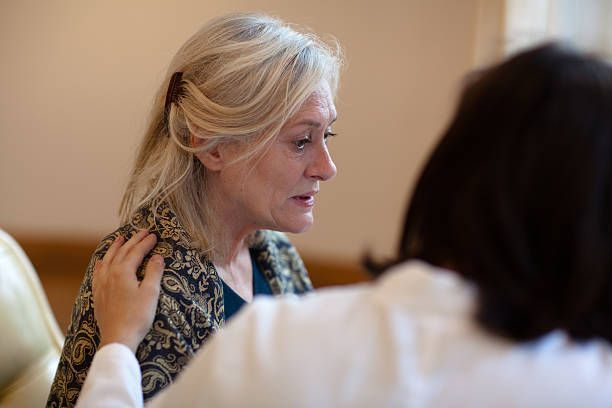

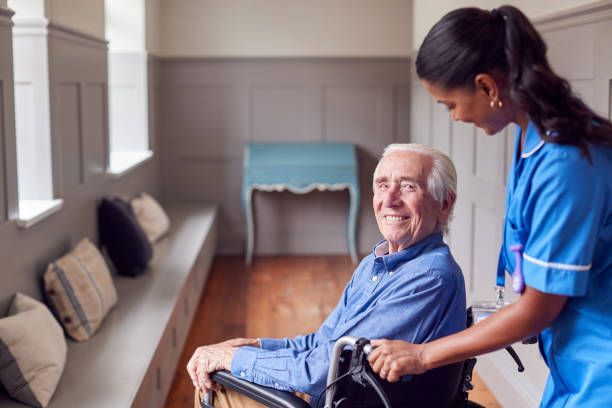

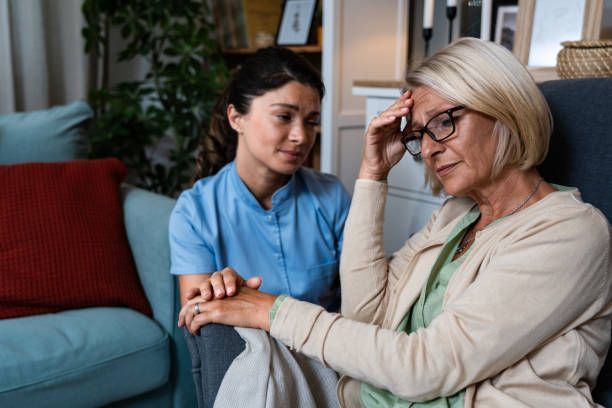

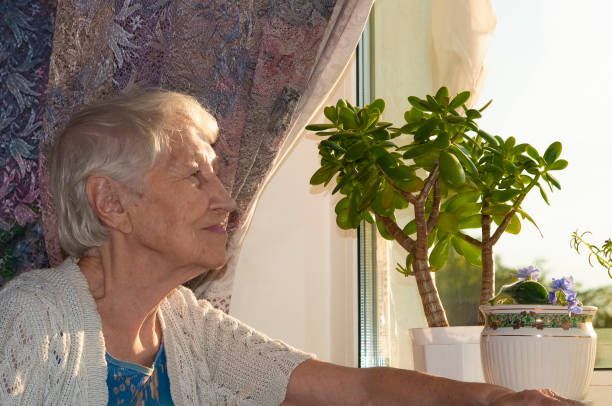

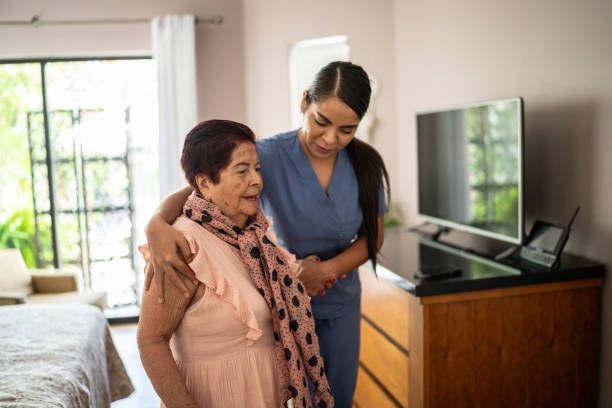
Long Island Location
Hours of Operation
We are Open 24 Hours a Day
7 Days a Week
Contact Us



Share On: